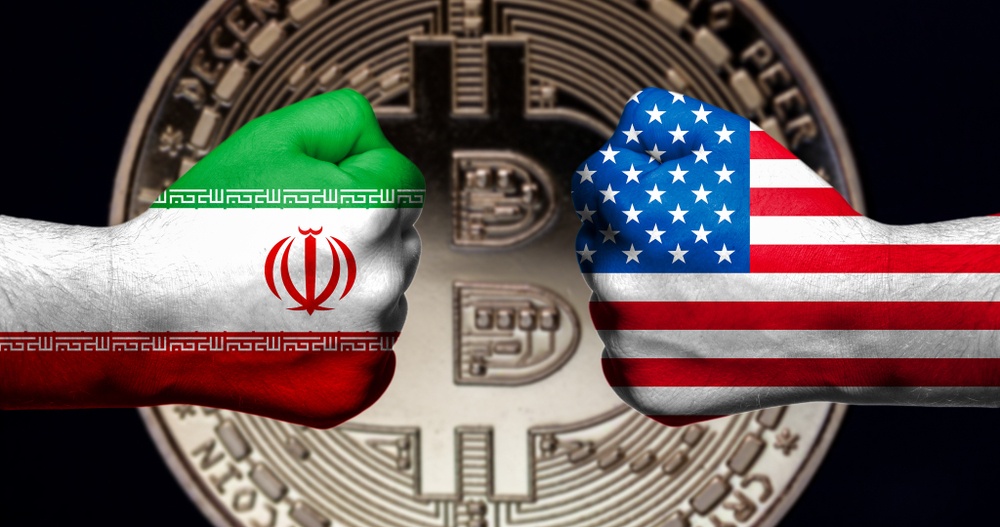The US-Iran Conflict Is Another Template Proving the Efficacy of Bitcoin as A Safe Haven
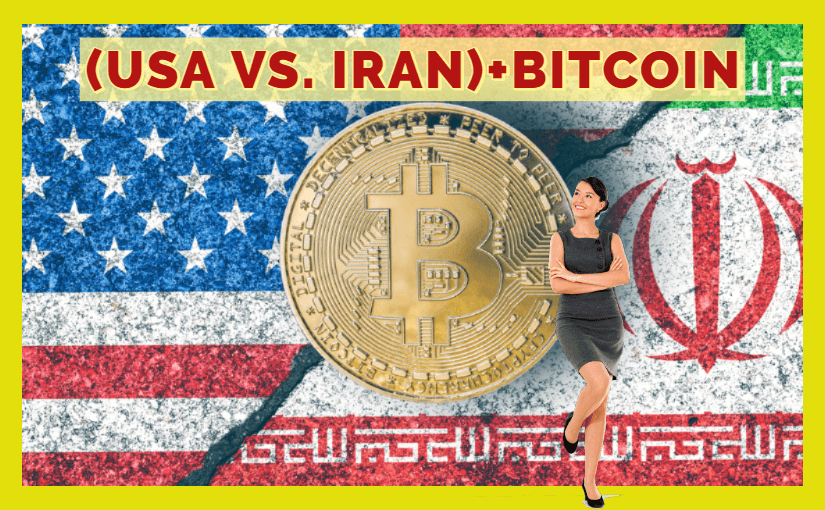
Recently, the media created various narratives of how the growing tension between the US and Iran has contributed to Bitcoin’s surge to the $8,000 price mark. While some pundits have supported this assertion, others have, however, counterargued, an all too common development that trails bitcoin’s price uptrend following a major geopolitical event. Owing to this never-ending back and forth, I have decided to weigh in on the subject matter, explore the arguments of both sides of the divide, and try to present all the facts that might help readers reach their conclusion.
Here, I will dissect the prevailing notion that Bitcoin and other cryptocurrencies are safe havens and determine whether the recent market trend is just one more event proving this use case. But first, let me explain the concept of an asset or investment vehicle classified as a safe haven.
What is a safe haven?
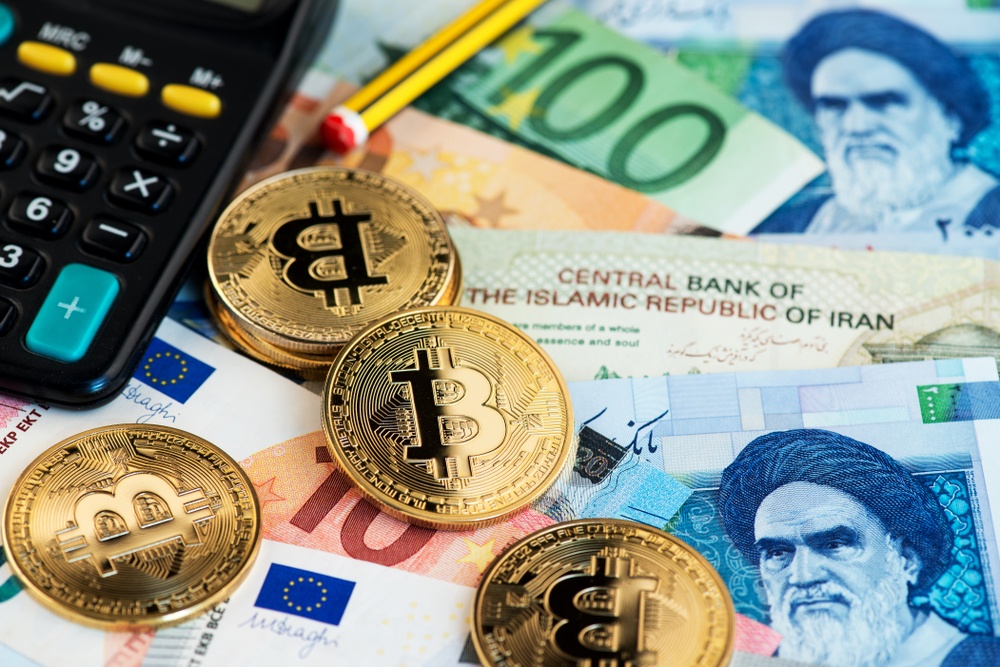
Few asset markets have qualified as safe havens and retained their statuses as reliable and stable investment tools. One such asset is gold, which functions as a store of value. According to Investopedia, “a safe haven is an investment that is expected to retain or increase in value during times of market turbulence,” and it is “sought by investors to limit their exposure to losses in the event of market downturns.”
From this definition, it is clear that any asset that has shown the tendency of negating prevailing market trends and sustaining its value, amidst market downswing, qualifies to be a safe haven. Well, if we are to go by this assertion and base our understanding of safe havens on it, then it is safe to say that any asset can function as one, as long as it allows investors to diversify their portfolio and reduce risks.
What constitutes safe havens are prone to change from time to time. As such, it is risky to peg a particular asset class, except maybe gold, as a viable and reliable instrument to circumvent the effects of inflation or a recession. In essence, an asset or investment vehicle might have exhibited a negative correlation to a general market experiencing a downturn in the past, and yet, suggest strong correlations in another period of market volatility.
In a bid to shield themselves from the effects of market volatility, a majority of investors usually buy gold, which further propels its demand and causes its price to increase. Or they buy the fiat currencies of countries with fairly stable economies. However, in recent years, a third option has emerged. Cryptocurrencies are slowly showcasing investment viability that might suggest that they could offer investors an opportunity to evade losses resulting from economic turmoil. This notion was evident in 2018 when Venezuelans’ appetite for the digital market peaked, as the value of the nation’s local currency plunged to new lows. Regardless of this, there are still those who doubt bitcoin’s status as a store of value.
To properly understand the role of safe havens in countries under sanctions or experiencing inflation, we must dive deeper into the above-mentioned requirement that states that an asset must have little to no correlation to conventional markets before it can stand as a safe haven. One asset that has constantly met this requirement is Gold, as it retains its value or follows an upward trend whenever the prevailing markets of a nation are on a bad run. And while this is the case, it is never the right decision to acquire and hold gold in a war-ravaged country because investors might not, at that moment, have the appropriate security and insurance services to ensure that valuable assets are safe from theft.
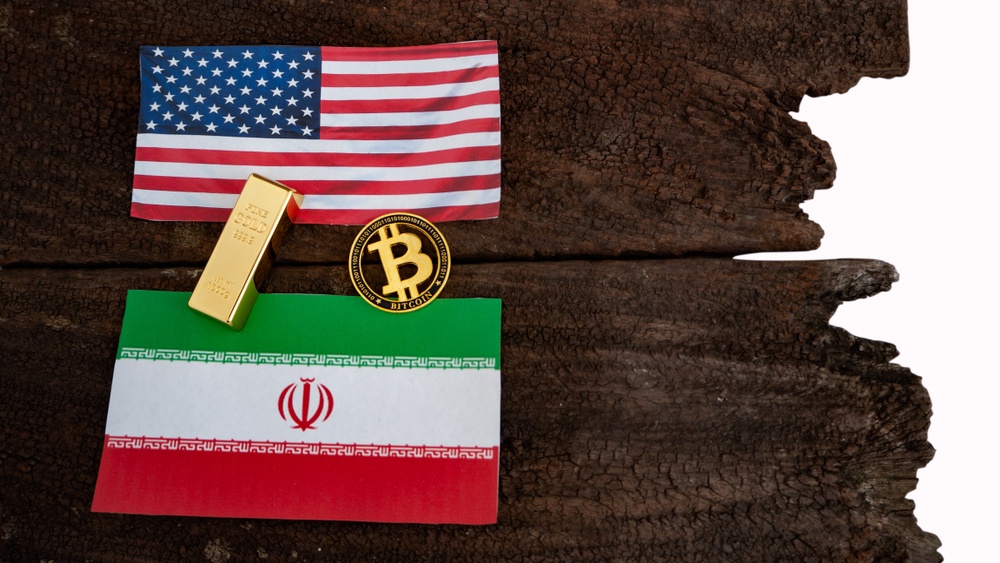
As stated earlier, another option is to buy stable fiat currencies, which is not always a viable option for countries slapped with sanctions and economic embargoes. For countries battling crises resulting from US sanctions, it is almost impossible to access the US dollar or the local currencies of allies of the United States. Also, it is almost impossible to engage in international trade since the US dollar remains the standard currency for the global market.
This leaves nations under economic embargoes with the last option – encourage the trading of cryptocurrencies or create a state-backed coin that will make it easier to trade.
Why is cryptocurrency a viable option?
Cryptocurrency is a technology, particularly bitcoin, that packs a lot of features making it immune to the middleman factors affiliated with the conventional banking system. In other words, your transactions do not need to go through a series of banking verification processes before it is approved. This possibility makes bitcoin a useful financial tool for international payments or global remittance. You could use bitcoin to pay for services or products anywhere in the world without having to subject yourself to the scrutiny that regulators have imposed on traditional financial systems.
This benefit is one of the reasons why crypto seems appealing to citizens of nations banned from accessing the US dollar. A majority of cryptocurrency incorporate decentralization, which makes it a tad difficult for economic powers like the United States to restrict or regulate them. Recall that, at some point, lawmakers in the US acknowledged the disruptive nature of cryptocurrency and commented on its capacity to dislodge the US dollar’s dominance in the global market.
Another reason why bitcoin proves to have the antidote for a dwindling economy is that it can avail a “store of value” functionality. I earlier mentioned that an asset must exhibit a low correlation to the general markets before it can qualify as a safe haven. If this is the case, then bitcoin has shown time and again that it negates the trends apparent in a majority of the popular asset markets. Institutional investors and family offices have begun to incorporate bitcoin as a diversification tool to help avert risks associated with investing in identical markets.
Throughout 2019, a plethora of reports documented bitcoin’s consistent show of defiance towards prevailing market trends, as it continues to exhibit an inverse correlation to traditional markets. According to a report released in June 2019, bitcoin maintained a low correlation to S&P 500, amidst tension between the US and China that impacted the stock market. The report stated:

“May marked one of the most tumultuous months for global markets in recent history as U.S.-China trade relations continued to strain. On Monday the 13th, as China announced that it would raise tariffs on roughly $60 billion of U.S. goods, the S&P 500 fell 1.7% and the Chinese yuan reached a four-month low. At the same time, BTC rose 7%, from $7158.34 to $7679.21. From that point onward in the month, BTC approached a nearly perfect negative correlation with the S&P 500, while its correlations with leading altcoins became almost perfectly positive.”
Another report in August suggested that bitcoin has begun to show that it can offer risk evasive solutions just as gold has done over the years. The report presented a chart showing the 90-day correlation between the price of gold, bitcoin, and stocks. After examining the chart, it was clear that bitcoin had not only retained its value but have experienced an uptrend while the stock market was in a slump. The same was true of gold, which led Ryan Alfred, president of Digital Assets Data, to conclude that bitcoin was increasingly proven its viability as a store of value. According to him,

Ryan Alfred, president of Digital Assets Data
“The findings tend to signal that Bitcoin is starting to behave more like a store of value and is potentially being used as a safe-haven asset during global uncertainty in traditional markets.”
While exploring how gold and bitcoin reacted to the recent military altercation between the US and Iran, I noticed that the gold market experienced increased volatility that saw the price shoot up from a stable 1,552.42 USD/oz on the 5th of January to a new high of 1,598.89 USD/oz on January 7. Since then, the price of gold has dipped, which coincides with the United States’ congress move to limit Donald Trump’s autonomy in the ongoing assault on Iran.
The same is true of the bitcoin market, as price rallied just about the same time that the price of gold began to surge. And the price of bitcoin reached new highs on January 7, as the tension between the two nations heightened. Amazingly, the price dipped just as it was noted in the gold market. Without any doubt, there is a strong correlation between the reactions of both markets to the events unraveling in the geopolitical scene. And there is every reason to believe that bitcoin might have taken its place as one of the reliable assets, even as the stock market in the United States experienced a downswing resulting from the uncertainties trailing war provoking actions on the part of both countries.
Another evidence of bitcoin’s burgeoning status as a valid store of value is found in a chart detailing the one-year correlation between gold and bitcoin. According to Coinmetric, both markets have indicated increasingly strong correlations for some months now. As such, it comes as no surprise that Iran has opted to include components of both assets in its grand financial innovation, which it hopes would help fight-off inflation and economic embargoes.

Adam Vettese, a UK market analyst
However, some experts have downplayed bitcoin’s ability to provide a safe haven to investors in times of financial crises. For one, Adam Vettese, a UK market analyst, has credited bitcoin’s recent price upswing to a mere “technical move off support at $7,000.” As such, based on this argument, the bitcoin’s uptrend is a coincidence, as bitcoin was only bouncing off the $7,000 price floor. He went as far as stating that the concept of a safe haven does not fit into the bitcoin narrative because it is a high-risk asset.
Well, looking at this subject matter from the above-stated angle presets one or two factors that could question the prospect of bitcoin as a safe haven. For one, the market is very volatile, and there is no way bitcoin will sustain a stable valuation all through a crisis that could extend for months. Nonetheless, we can also puncture Adam Vettese’s argument by referring to the definition of the term “safe haven,” as explained by Investopedia. In the definition, there was no mention of a recommendation, which requires a safe haven not to exhibit volatility. On the contrary, the main requirement is that the asset either has to retain its value or go-ahead to an increase in valuation. Hence, regardless of the many fluctuations that the price of bitcoin might record, the most important criterion by which we can judge its viability is its ability to never dip beyond what it sold for when people started buying bitcoin to escape failing markets.
Based on this assertion, it is clear to see why Iran has struggled to impose restrictions on the trading of cryptocurrencies. Besides, it is no more news that Iran looks to implement a gold-backed cryptocurrency that would relieve its financial sector of its reliance on foreign currencies. Note that the Iran government has not always been a fan of crypto technology. In 2018, as the economic sanctions imposed on Iran tightened, the government considered the prospect of establishing state-owned crypto before eventually placing a blanket ban on it and forcing its citizens to rely on Gold as a store of value. Down the line, it lifted the ban, while noting that crypto was the ideal tool to bypass economic blockades. Amidst all these regulatory restructurings, the Iran government intensified its quest to deploy a financial tool to provide a shield against sanctions and offer safe haven-like functionalities.
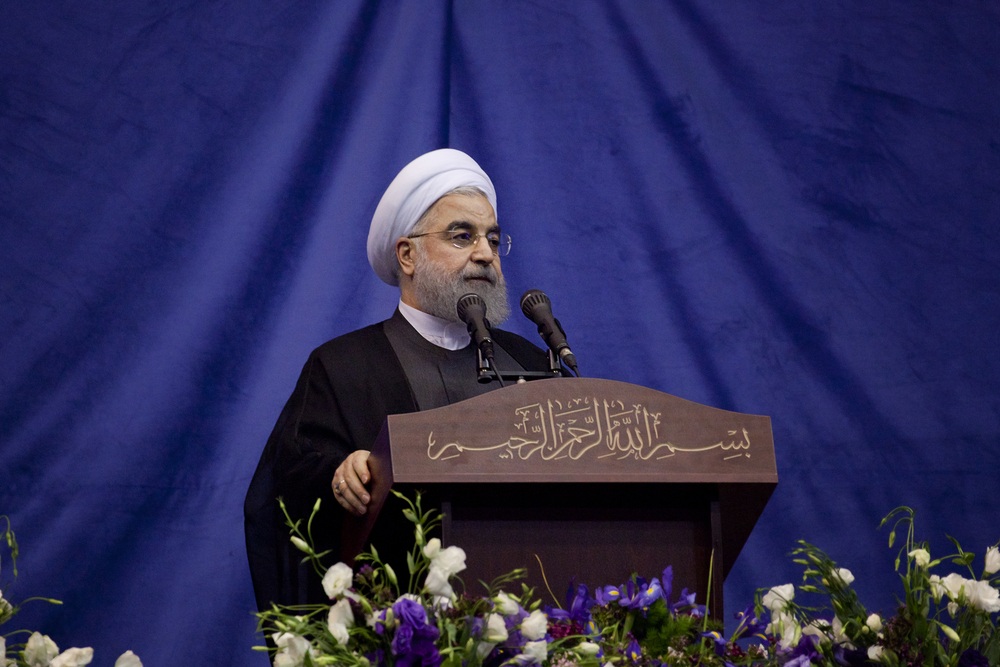
Hassan Rouhani, president of Iran
It is this zest that has seen president Hassan Rouhani urge other Muslim leaders to combine technical and financial resources to create a cryptocurrency, which could help them limit the economic leverage of the US on the global market. President Hassan Rouhani reportedly stated in a meeting with top officials and the leaders of some Islamic states that “the Muslim world should be designing measures to save themselves from the domination of the United States dollar and the American financial regime.”
Final thoughts
Judging from the points raised in this article, it is becoming apparent that bitcoin is slowly finding its footing as a reliable asset class for nations battling economic crises. The US-Iran altercation is one more event proving its growing viability as a safe haven.
